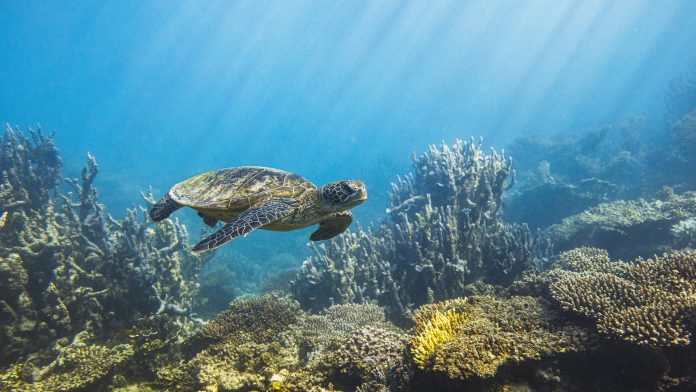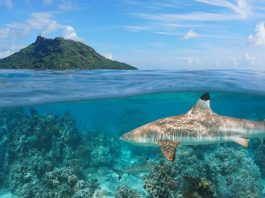The Bezos Earth Fund announced its first ocean conservation grant on 27 June 2022, to contribute towards supporting marine conservation.
The Bezos Earth Fund (BEF) revealed its conservation grant to National Geographic Pristine Seas during the National Geographic Ocean Night at the UN Ocean Conference in Lisbon. Over the next five years through the support of this grant, the Pristine Seas programme team will be discovering, recording, and organising research in the central and western Pacific Ocean. This is a region that contains the highest marine biodiversity on the planet, most of which is currently unprotected from extractive activities.
“The ocean is our planet’s life support system and a major carbon sink,” explained Dr Andrew Steer, President, and CEO of the BEF. “Investing in the ocean can be a powerful solution to many major challenges. It can protect vital marine ecosystems, provide jobs, help local communities, improve food security, and address climate change. These commitments are the first of many the Bezos Earth Fund will make to support marine protection in this decisive decade.”
The BEF grant contributes towards understanding and supporting marine life conservation
The National Geographic Society (NGS) distributes 100% of all grants received and funds raised to reinforce its priorities and mission-driven efforts, including financing its explorer-led programmes, like Pristine Seas. The BEF grant directly reinforces the society’s ‘ocean’ area of focus – this is one of the five focus areas outlined in the society’s five-year strategic plan, NG next.
“It is vital to explore the depths of our oceans to better understand how we can protect them,” observed Jill Tiefenthaler, CEO of NGS. “We are extremely grateful to the BEF for their generous investment and shared commitment to planetary stewardship. This grant will enable the society to continue championing the critical work of our Pristine Seas programme, accelerating our mission and global impact in support of our strategic plan.”
Since 2008, the Pristine Seas programme has worked together with local communities, indigenous people, governments, and other partners to contribute towards supporting marine conservation, by creating 26 marine protected areas across the global ocean. This covers a total of 6.5 million square kilometres of ocean, which is an area more than twice the size of India.
“It is an honour to receive this grant. It provides us with an exciting opportunity to work with local partners to accelerate, scale and finance permanent ocean protection,” said Enric Sala, National Geographic Explorer in Residence and Founder of Pristine Seas. “This grant allows the Pristine Seas programme to continue to provide countries and local communities with the assistance and support they need to create marine protected areas and achieve their ocean conservation and economic goals.”
What are the benefits of ocean conservation?
The tropical Pacific Ocean holds the largest tuna fishing operation on the planet. However, global warming is lowering ocean productivity and transferring tuna populations outside the region. Thus, increased ocean protection would not only be good for marine life but also for local communities through fisheries benefits, increased food security, and mitigation of climate change. Currently, approximately 10% of the island nation’s waters in the tropical Pacific Ocean are very well protected.
Through the power of discovery, research and storytelling, the Pristine Seas team engage with governments and local communities on the significance and substantial benefits of marine protected areas. Indigenous people, local communities, and key partners are crucial in ensuring that the process of creating and managing a marine protected area is developed and owned by the community. The Pristine Seas programme intends to target four new areas for protection every year.
“To ensure that local communities can continue benefiting from a healthy ocean, we need to build a blue economy where protection, production and prosperity all work together in unison,” concluded Sala.









